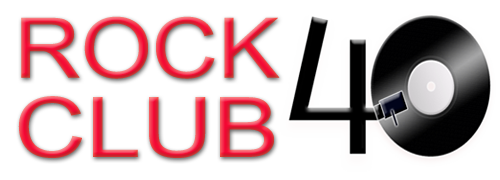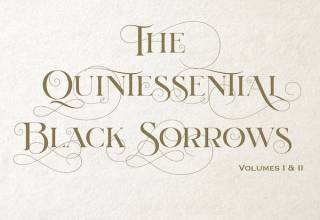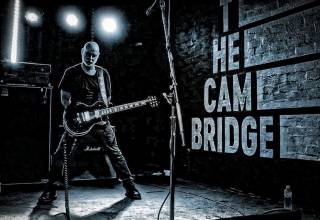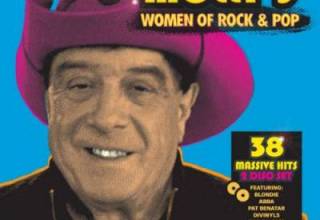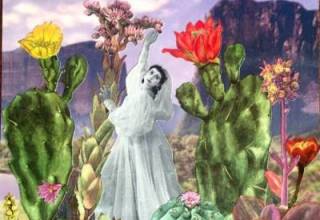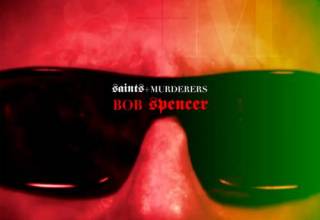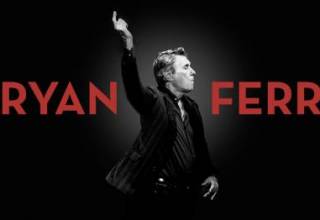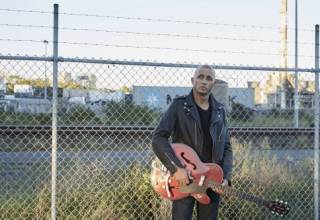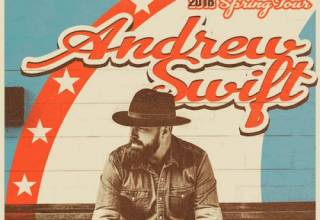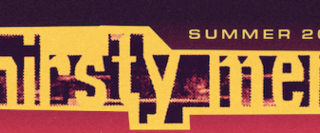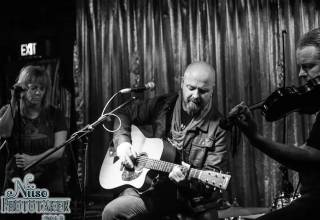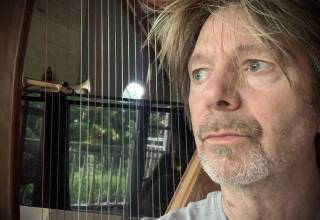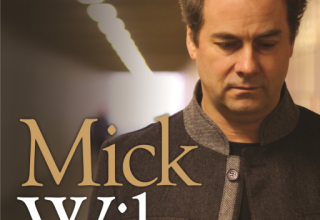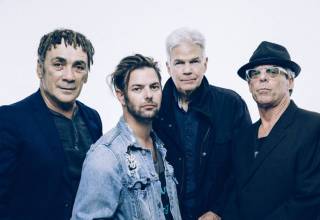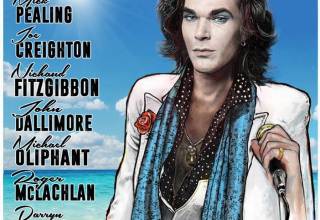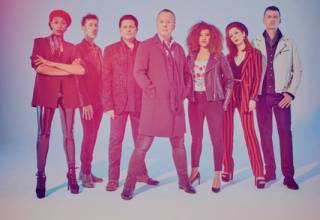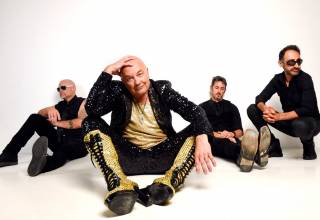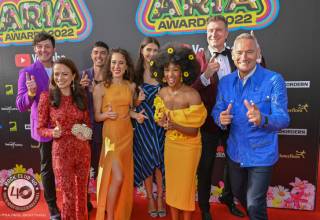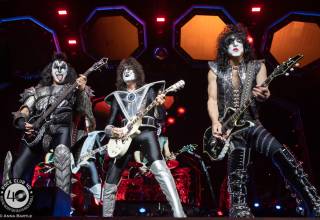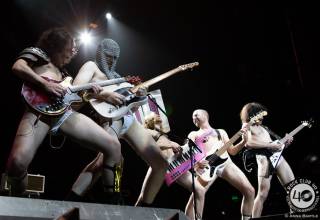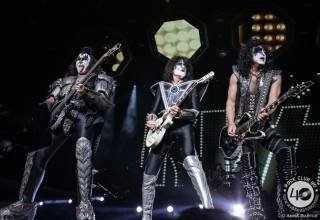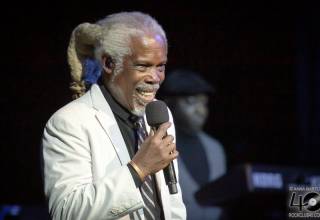Photo courtesy of Philip Morris
Perhaps best known for his work with Australia’s favourite group in the seventies, Sherbet, renowned rock guitarist Harvey James has, nonetheless, played with many other big names of Oz rock. His credits include working with such greats of the music industry as Richard Clapton, Swanee, Darryl Cotton, Marc Hunter, The Party Boys, Ariel and Mississippi.
“Joining Mississippi was a big learning curve for me,” he admits. “I was an English migrant. You know when you’re at school and you get to a certain age and you think ‘Well, shit, what am I going to do?’ In general, I think a lot of kids are sort of left in that abyss. I was very fortunate in that I was in high school, the first time I’d ever seen an electric guitar. I thought it was the most beautiful thing I’d ever seen in my life. And that sort of planted the seed.” Perhaps it was inevitable that Harvey would end up taking the musical path through life. He recalls that there were a lot of people at his school who were interested in music in those days. “John Farnham used to go to the same school and there was a young English guy who used to sit next to me in class. Being English migrants, you tend to gravitate towards other English people because you do have something in common. Steve Webb his name was and one day he turned to me and said ‘Harvey, do you sing?’ and I said ‘Of course I do’ and I ended up joining his band and being the singer.” But Harvey quickly realised that he needed to do more than just sing into a microphone. “I used to feel like a complete idiot, standing up there with my hands hanging loose, doing nothing. Every now and then, I’d glance across at the guitar player and I started to think ‘That’s what I should do.’ because at least you’re up there doing something. And I took it from there. I really took up learning with an ambition and a passion and drive. I don’t know where it came from. Most kids, when they’re sixteen or seventeen, aren’t fortunate enough to be able to find something that inspires them.” As a teenager, he started playing in clubs around Melbourne and, one night, unbeknownst to him, there were two members of the audience paying special attention to his guitar playing. Beeb Birtles and Graham Goble (both then members of the band, Mississippi) had come to see him play. “In a roundabout way, I got an offer to join and so did the other guitar player. It was a very blues orientated music in those days. That would have been late 71, 72. They asked me to join and I thought ‘Yeah.’ The other guitar player said, ‘I’m not joining a bunch of poofs.’ and I said, ‘Well, see ya later. I am!’” he laughs. “I turned up with my Marshall stack and I had that drummed out of me very, very quickly. I had to toe the line to come to the realisation ‘Harvey, you’re in a band with those three excellent vocalists and, realistically, you’re the side man here and you’ve got to play the right thing at the right time.’ A big learning curve and one I still cherish to this day. That’s why, by the time I was with Sherbet, I was pretty well prepared for playing the popular song and toeing the line. In fact, I actually quite enjoyed that. I think that’s at the seat of good music. In my opinion, music’s a great thing and the opinion of your peers should be pretty much ignored. When you’re playing, if the audience doesn’t understand it, well, there’s no point doing it.”
Harvey says that he still has one signal that identifies a good guitar player in his mind. “If that guitar player makes the hairs on the back of my neck stand up, he’s done his job. Somebody playing fifty eight or sixty notes to a bar doesn’t impress me. I know they’re very good and technically adept, but I don’t think that actually translates to the audience because the audience doesn’t actually understand that.”
Looking back over his body of work over the years, the guitarist is proud of the fact that his music can be interpreted by the average listener as being good and being appreciated.
“I don’t know whether I did it consciously or it was just something that came naturally. When you’re a guitar player with a band like Sherbet or Richard Clapton or whoever, you dare to play that popular song and you really have to do your best to make sure that song sounds the best it possibly can and that doesn’t involve any histrionics on your part. Rarely, when you’re playing a popular song, do you get to do extended solos that last for sixty or seventy bars. They’re rarely that self indulgent.”
When Harvey was twenty years old, he travelled to the U.K. with Mississippi on board the cruise ship, The Fairstar. “A lot of bands actually did it at the time. We played on The Fairstar for six weeks. That was quite a funny experience because I think we only knew eighteen songs and we had to play for about four hours. We used to play at the little café bar down the back of the ship. It was really quite funny because, in those days, you didn’t have a Walkman or a Nano. When you wanted to learn a new song, you had to play the record or a tape. We didn’t have anything like that on board so we just had to learn the stuff purely out of memory. Every single night – we played seven nights a week – every single night was exactly the same thing. So, as a result, all the people in the audience became an authority on the band. It was a funny experience but one I’ll never forget. When we landed in England, I left the band. And the bass player and singer, Charlie Tumahai, left as well and they went on to team up with Glenn Shorrock and Glenn Wheatley. And they formed a band over there, came back over here, changed the name to The Little River Band and away they went…”
So a future with LRB was not part of the grand design of Harvey’s musical career. But, as fate would have it, there were other opportunities lying in wait for the talented guitarist. “Strangely enough, one of the guys I went to High School with was a guy named John Lee. John and myself were like brothers. John was a fantastic drummer and not a bad singer as well. We sort of went along different paths after school. John was the original long-time drummer with The Dingoes and we still kept in contact. I stayed in England and went to Yorkshire to spend time with my relatives up there and I said ‘Well, I’d better go back to Australia.’ And when I got back, John rang me and said ‘You’re an Ariel’. I said, ‘What do you mean I’m an Ariel?’ and he said ‘It’s done and dusted. It’s written in stone. You’re now an Ariel.’ So John and I joined up with Mike Rudd and Bill Putt and ended up going back to England to record the album (Rock ‘n’ Roll Scars) at Abbey Road.” Rock ‘n’ Roll Scars was mixed by Geoff Emerick who is largely known for his work as engineer on many of The Beatles later recordings. “From memory, I think that album only sold about two and a half thousand copies in Australia and, still to this day, when people come up and introduce themselves, for some strange reason, they still always mention that album. It’s quite weird. It’s sort of become a bit of an underground classic. And the fact that I was at Abbey Road, I thought ‘Oh well, I was just at Abbey Road.’ When we recorded the thing, we recorded it in about four days, worked really hard on it and the album does sound terrific when you put it on. I don’t know if you’re au fait with the technology but the technology at Abbey Road was old technology and everything was all valve. The desk was all valve, the recorder was all valve, all the power amps were all valve. The warmth that comes from that album, especially the drum and guitar sounds, are outstanding.”
While technology has certainly progressed since then, Harvey firmly believes that some of the more traditional methods of recording are still the best. “I guarantee that, if you talk to the majority of engineers these days, even though computerised and wave formatting is really handy, you still have to come down to the basics of recording and you cannot beat the sound of valve. Take Garth’s studio in Botany, for example. We rehearsed there for the Countdown Tour and also recorded two new tracks to put on a Sherbet Spectacular album. Garth’s studio is pretty much all valve. He has two amplifiers there. He has an original Fender 59 Bassman and an original Vox AC-30 Pre-Topboost. Those two guitar amps in there, one was built in 1959. The other one would have been built in about 1961-62. He is pretty adamant that every guitar player that comes into that studio to do sessions plays through those two guitar amps. Even though computerised and wave formatting is really handy, you still have to come down to the basics of recording and you cannot beat the sound of valve. They have to have a mix too and Garth has got a perfect mix. I’ve got to tell you, Garth’s a very clever man. He’s a very talented man. Garth’s a fantastic organiser and he always makes sure that everything is done properly.”
Garth, of course, is Garth Porter of Sherbet and therein lies the next chapter of the Harvey James story and the decision that would change his life and throw him head first into a strange new world of screaming fans and wild hysteria…
Part 2 next week
by Sharyn Hamey
Copyright © 2010 Sharyn Hamey All Rights Reserved.
